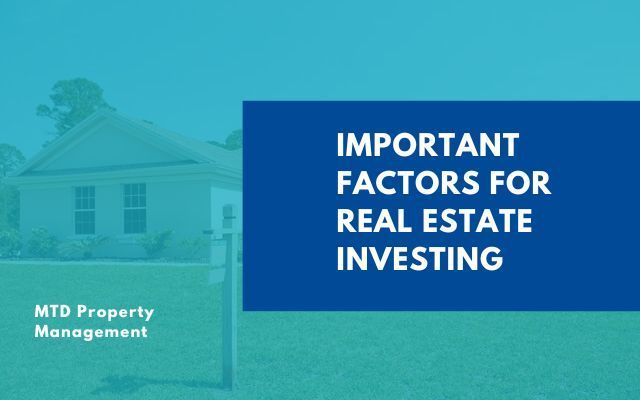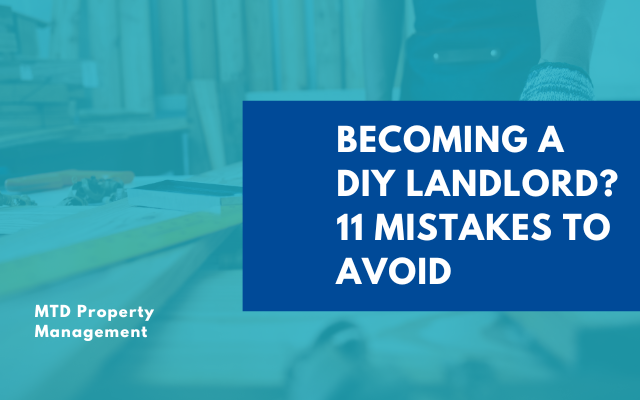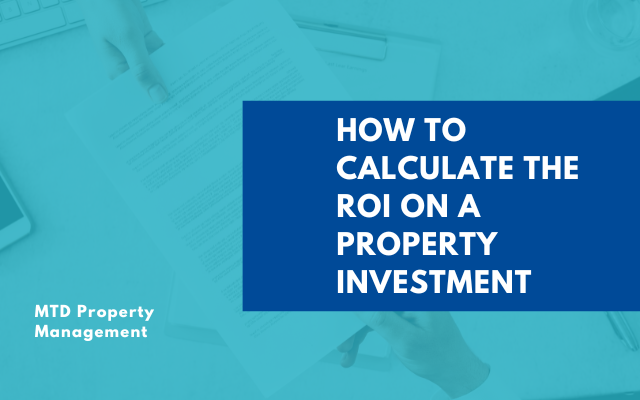Important Factors for Real Estate Investing

From the location to the type of property you are opting for, every detail matters when you decide to enter the world of real estate investing. It's also helpful to have a thorough understanding of real estate investing terms.
In this article, we will share some important factors to consider for real estate investment!
Investments Goals
The first step to take when investing in real estate is to establish your financial goals. This is because, while real estate investments offer potential wealth, they also come with risks. Without a clear understanding of your investment’s purpose, unexpected outcomes, including financial distress, can arise.
Here are some common reasons people choose to invest in real estate:
- Buy and Self-Use: This option represents people looking to purchase a home to live in. This option allows the owners to gain equity and benefit from value appreciation.
- Buy and Lease: This method allows owners to generate regular income from rent collection and long-term value appreciation, but it comes with the responsibilities of getting the property rent-ready and being a landlord.
- Buy and Sell (Short-Term): Pursue quick, small to medium profits by investing in properties that require updates, renovating them, and selling them upon completion at a higher price point.
- Buy and Sell (Long-Term): Focus on value appreciation over a prolonged period of time.
Factors That Impact Your Investment’s Success
Once you’ve established your investment goals, you need to select the right kind of property. The following factors can impact how well your investment performs:
Property Location

Selecting the right location to invest in can help you make the most out of your investment. Being close to bustling markets, schools, transportation hubs, and essential amenities can increase the property's value and help draw in tenants.
When selecting the ideal location for your real estate investment, try to find property in areas near shopping centers, schools, hospitals, parks, and recreational facilities. You also want to opt for a location accessible by highways and public transit systems.
Assess the neighborhood's appeal in terms of safety, ambiance, and long-term desirability. Then research the area's growth potential, including economic prospects and ongoing developments, as these can impact the property’s long-term value.
Finally, take into account the scenic surroundings, such as parks, walking and bike paths, and waterfront views, which can also enhance the property's overall value.
Property Valuation
Property valuation is a cornerstone in various aspects of real estate. Whether you're seeking financing, determining accurate rent prices, conducting investment analysis, securing insurance, or handling taxation, it all hinges on the valuation of your property.
Consider the following methods of valuation:
- Sales Comparison Approach: This method involves analyzing the recent sales of properties with similar characteristics to yours. Appraisers can estimate a property's value by considering factors such as location, size, condition, and amenities.

- Cost Approach: Primarily used for new constructions, the cost approach determines a property's value by considering the cost of the land and construction, subtracting any depreciation. It’s based on the principle that a buyer would not pay more for a property than the cost of building a similar one.
- Income Approach: The income approach focuses on the property's income-generating potential, making it suitable for rental properties. It estimates the property's value based on the expected cash inflows from rental income, taking into account operating expenses and capitalization rates.
Financing Your Investment
Real estate loans offer a gateway to property ownership, but understanding the intricacies of these loans is essential for long-term financial stability.
Start by evaluating your ability to handle loan repayments by assessing your debt-to-income ratio. Strive to maintain a balance where your debt obligations do not exceed your income.
Then conduct thorough testing to assess how your investment would fare under different market scenarios, including downturns. This helps you gauge the potential impact on cash flow and loan repayments and can better guide you in establishing your budget and savings plan.
Once that’s done, build up reserve funds to cushion against unexpected expenses,
extended vacancies, or market fluctuations. Having a financial buffer can provide stability and prevent over-reliance on debt.
Ultimately you want to avoid working with overly optimistic figures, as they can lead to over-leverage and financial instability. Take a strategic approach to your real estate investments by considering long-term goals.

Choosing between a New Construction or an Existing Property
Choosing between new constructions and existing properties can be challenging. Each option carries its advantages and disadvantages.
To help you decide, you need to determine your financial capacity and evaluate which option best fits your budget. New construction often comes with a higher price tag, but existing properties may require more repairs.
Assess your willingness and ability to manage maintenance and repairs. New construction requires less immediate attention, while existing properties may require updates or
renovations.
Then consider your timeline. Due to construction schedules, new construction projects often have longer lead times, whereas existing properties may offer more immediate occupancy or rental opportunities.
If you’re investing in leased property, determine if the property is rent-controlled, rent-stabilized, or in the free market. Assess the lease terms, including its expiration date and
renewal options. Additionally, understand the ownership of furnishings if they are included in the sale.
Bottom Line
When venturing into real estate investment, several critical factors demand attention to maximize success. Understanding the importance of location, property valuation, financing options, and market trends is crucial. Thorough research and the guidance of experts can lead to informed decisions and mitigate risks.
Remember, real estate investment requires continuous monitoring and adaptation. Stay vigilant, review your investments periodically, and remain informed of market conditions. If you need expert guidance, contact
MTD Property Management! Our team of professionals are here to provide personalized advice and support to help you achieve your investment goals.









